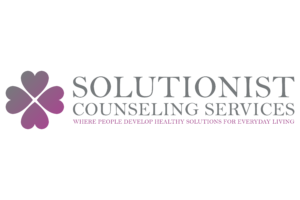The physical and mental emotions that occur after a traumatic experience can be excruciating and difficult to process – especially alone. Trauma often leaves individuals feeling lost and confused about how to deal with these emotions. Trauma is not easy to resolve, which is why it is important to work with a mental health professional who has experience with trauma-informed care. According to medical professional Dr. Peter Levine, “Trauma is the most avoided, ignored, denied, misunderstood, and untreated cause of human suffering.” Intuitively we recognize when we have been traumatized or experience a traumatic event. However, many people struggle with processing these emotions and reaching out for help. Trauma therapy in Boca Raton with Solutionist Counseling is here to help.
What is Trauma?
Trauma is often describes as an injury to the brain. When treating a broken arm or leg, you wouldn’t leave the wound to heal on its own. Similarly, trauma needs to be treated properly in order to promote healing. In fact, MRI and CT scans have revealed that trauma actually changes the structure and function of the brain. Trauma occurs as a result of several types of events, such as:
- Life threatening or physical events (domestic violence, car accidents, etc.)
- Sexual abuse or assault
- Medical
- School violence and/or bullying
- Grief
- Forced displacement
- Natural disasters
- Military conflict
Although traumatic experiences usually involve life threatening events or serious injuries, any situation that leaves an individual feeling lost, completely overwhelmed, or alone, can be traumatic. Trauma is not based solely upon objective facts of the event, but it is also subject to the emotional experience of the event.
Additionally, trauma is not necessarily a singular event but may result from ongoing stress in one’s life. Trauma includes situations where individuals feel unprepared, surprised, and powerless over a set of circumstances and/or events. The likelihood of an individual experiencing trauma increases if the event is particularly cruel in nature or occurs repeatedly.
In most cases, individuals will experience strong emotional or physical reactions immediately following a traumatic experience. Although some people may experience their feelings dissipating over the course of a few days or weeks, other people may find that the feelings become increasingly more severe and begin to affect the quality of their everyday life. Common symptoms of psychological trauma include:
Cognitive
- Intrusive thoughts of the event occurring unexpectedly
- Mood swings
- Flashbacks of the traumatic event
- Disorientation
- Loss of memory and/or concentration
Behavioral
- Avoiding activities or places that were once enjoyable
- Withdrawal from social situations
- Inability to maintain employment
- Family discord
Physical
- Changes in eating or sleeping patterns
- Insomnia
- Startling easily
- Being edgy
- Sexual dysfunction
- Over alertness
The effects of trauma, over time, make the world feel as though it is growing smaller. A person may live with the symptoms of emotional trauma for years – causing devastating effects that creep into every aspect of life. Untreated trauma often leads to substance abuse, including illicit drugs, prescription medications, and alcohol. Individuals who have untreated trauma may struggle to maintain healthy relationships or have an inability to choose appropriate friends. Similarly, these individuals may engage in self destructive behaviors and impulsivity or have feelings of shame, depression, and hopelessness. With help from trauma based therapy in Boca Raton, individuals can learn to overcome these destructive behaviors.
Understanding Grief
Grief is an emotional response to a loss that an individual feels. Grief and loss aren’t isolated to death, but also include the loss of a job, business, friendship, or faith. All loss comes with a certain level trauma and all trauma comes with a certain level of grief. The most common reaction to an episode of grief is sadness, while the most common reaction to trauma is terror. In grief, a person may feel guilt and think, “I wish I would have done this” or “I should have done that.” However, in trauma, guilt is accompanied by feelings of “it’s all my fault” or “I shouldn’t have done that.”
Grief tends to take a natural course over time. However, in today’s environment of constant movement and social interactions, an individual may not be able to effectively find their own personal way of grieving. Jobs, family, and responsibilities often cloud the emotions. Consequently, it pushes people into a mindset of avoidance and causes additional long term concerns.
How Trauma Therapy in Boca Raton Can Help
At Solutionist Counseling, we offer specific trauma based therapy in Boca Raton to recognize and emphasize how your traumatic experience impacts your mental, behavioral, physical, and social well being. We will provide you with a safe and confidential space to identify triggers and express and understand memories and emotions that are related to your trauma. We provide each patient with coping strategies like anxiety management and relaxation techniques to help patients respond better to the emotions associated with a traumatic event.
By definition, trauma is a violation of your safety whether it’s physical, emotional, or relational. Our licensed therapists will work with you to reestablish your feeling of safety. At Solutionist Counseling in Boca Raton, our goal is to create a healthier and more adaptive meaning of the trauma you have experienced and offer you the tools needed to manage the difficult feelings, negative thoughts, and behaviors associated with it through trauma therapy. For more information on our counseling services, give us a call today or fill out the form below.
Grief and Trauma Are Painful to Live With
Are you ready to start talking about it?


